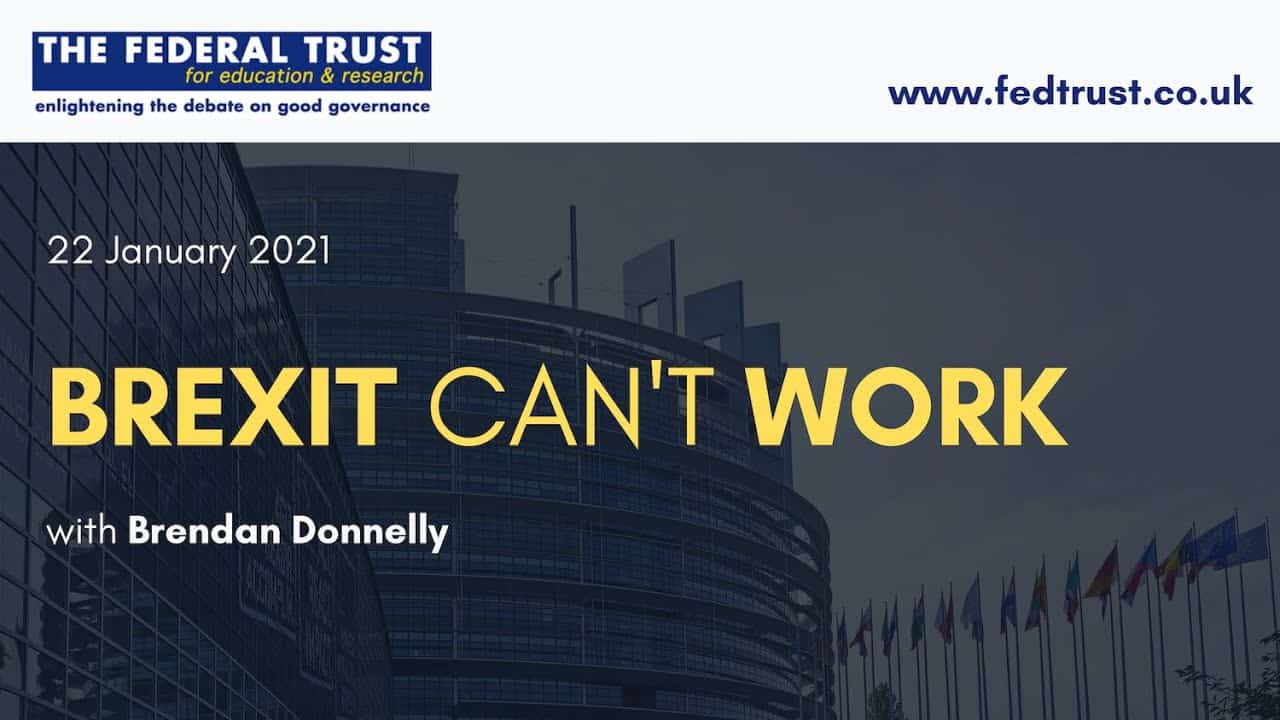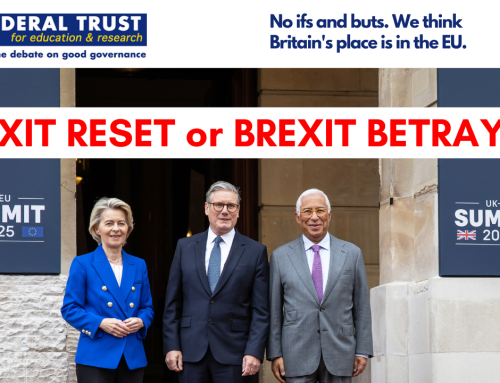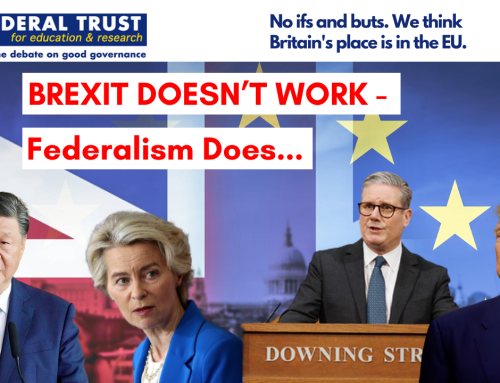In this new video, our director Brendan Donnelly discusses why Brexit cannot be made to “work” without considerable accompanying political and economic drawbacks. He argues that those who wish for the UK to rejoin the EU should start making the intellectual for this now:
Click here to read Brendan’s previous blogs.
It is often argued in British political circles that everybody in the UK, however they voted, should now collaborate in “making Brexit work.” Brendan Donnelly, the director of the Federal Trust, argues in his latest vidcast that this phrase is seductive, but misleading. The present British government has made it clear that it and it alone will define what making Brexit works means; it is indifferent to help or suggestions from third parties. It is in any case a misconception to believe that Brexit can be made to “work” without considerable accompanying political and economic drawbacks.
It is the Conservative Party and government that are responsible for Brexit and its implementation. Its political opponents should not allow themselves to be entrapped into sharing responsibility for the these drawbacks. Rather than pursue the vain goal of making Brexit “work” those who oppose Brexit should advocate rejoining the European Union. Brexit is already causing great economic and constitutional instability; it would be a strange political society in which the obvious solution to this instability was deemed unworthy of consideration. Remainers made a mistake in the years between 2010 and 2016 in not preparing the intellectual narrative for an anti-Brexit campaign during the referendum; the intellectual case for rejoining the EU cannot now wait until permission is given by the political parties. Political opinion in the UK can shift very quickly and much is currently happening to promote such a shift.
Would the EU want the UK back? Perhaps not the UK in its present form. But the United Kingdom may well look very different in ten years time, with more formal constitutional arrangements, a new electoral system and a more decentralised form of local and national government. This would be a UK much more likely to be a stable partner within the EU. Brexit was a project based on fanaticism. Rejoining the EU would be taking back control from the fanatics.






